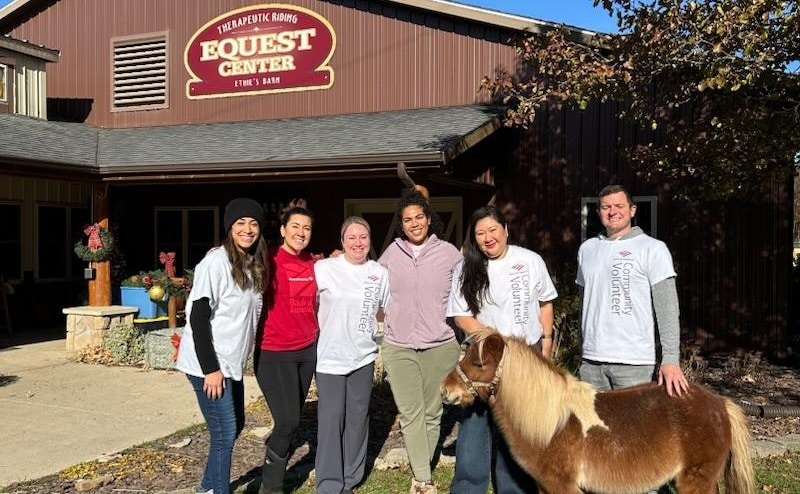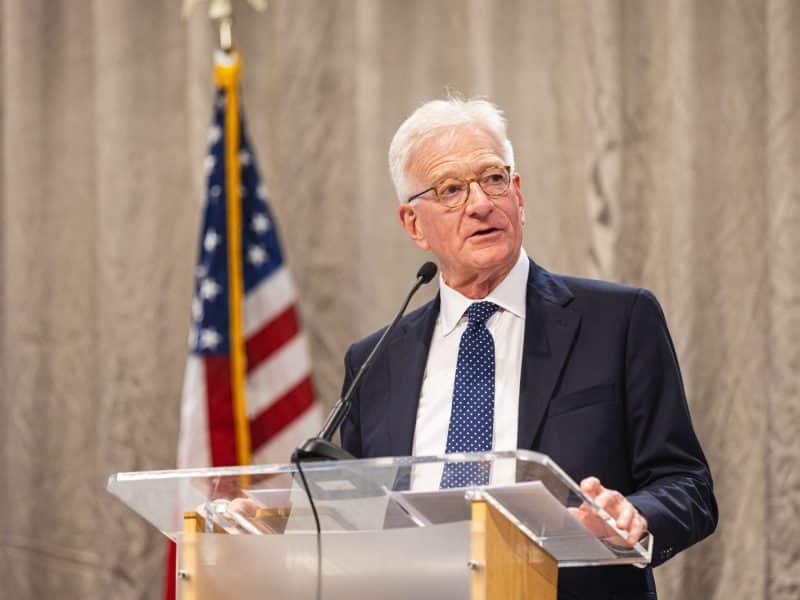Film Fest Frenzy
Could Traverse City or Saugatuck be the next Cannes? As Michigan becomes home to a growing number of film festivals, an enthusiastic band of cineastes are bringing Hollywood to the heart of ‘fly-over’ country.
It used to be that a film festival was an event as exotic as a World’s Fair or an international summit. Once a year, filmdom’s glitterati converged on some impossibly sun-drenched locale for red carpet photo ops, industry schmoozing and – oh, yes – the obligatory film premieres, screenings and awards. They were events only the rich and powerful could hope to attend, leaving the rest of us to catch the snapshots a few months later in our favorite celebrity rags.
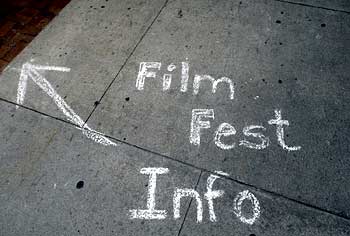 Now, almost 30 years after Robert Redford decided to bring a little bit of Hollywood to Utah every January for Sundance, film festivals are threatening to become as ubiquitous as county fairs, and West Michigan is no exception.
Now, almost 30 years after Robert Redford decided to bring a little bit of Hollywood to Utah every January for Sundance, film festivals are threatening to become as ubiquitous as county fairs, and West Michigan is no exception.
Where eager 4-H teens once groomed their best steer in hope of a blue ribbon, high-schoolers now hash out their best Spielberg homage on a camcorder and laptop –sometimes under contest-mandated time constraints of 48 hours or less– and submit it to the nearest fest board.
The advent of low-cost digital video put the means of creation in the hands of just about anybody (for proof, just click over to YouTube), but the capital, manpower and sheer square footage necessary for a sustaining a vibrant festival remains in the hands of only the most tenacious movie-lovers.
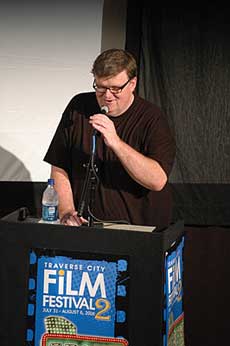 So what determines the survival of the fittest in the local fest world? The ones that thrive fall into four distinct categories: Scrappy, collective-like “starving artist” festivals; niche or minority fests (such as the Triangle Foundation’s Reel Pride festival or the Arab-American National Museum’s film program); exhibitor-heavy networking events that are more like film expos than fests; and star-studded, tourism-boosting, Sundance-style festivals.
So what determines the survival of the fittest in the local fest world? The ones that thrive fall into four distinct categories: Scrappy, collective-like “starving artist” festivals; niche or minority fests (such as the Triangle Foundation’s Reel Pride festival or the Arab-American National Museum’s film program); exhibitor-heavy networking events that are more like film expos than fests; and star-studded, tourism-boosting, Sundance-style festivals.
The Collectives
At one end of the spectrum is perhaps the purest distillation of what a film festival should be. Founded with the goal of nurturing passionate, independent, often local filmmakers, these organizations use their modest resources to collect and screen the most exciting unprofessional work they can get their hands on.
For the filmmakers, they get all-important feedback and praise but little else. More often than not, these are non-profit affairs co-sponsored by a major university, or a local arts council. Still others get by on sheer ingenuity and pluck.
Few fests in Michigan fit this description better than Hamtramck’s Planet Ant Film & Video Festival. In its fifth year, this offshoot of the decade-old Planet Ant Theatre has cultivated a laid-back, neighborhood block-party vibe, all the while steadily attracting talent from all over the nation.
 “The first couple of years it was just kind of a get-together,” said Mikey Brown, Planet Ant’s Festival Coordinator. In recent years, however, Brown and Festival Director Nate DuFort managed to woo celebrity judges from Fox, ABC and MTV, secured screenings of acclaimed films from higher-profile fests, all while retaining the backyard barbeques, late-night karaoke parties, and music-video screenings that have become hallmarks of the mid-June gathering.
“The first couple of years it was just kind of a get-together,” said Mikey Brown, Planet Ant’s Festival Coordinator. In recent years, however, Brown and Festival Director Nate DuFort managed to woo celebrity judges from Fox, ABC and MTV, secured screenings of acclaimed films from higher-profile fests, all while retaining the backyard barbeques, late-night karaoke parties, and music-video screenings that have become hallmarks of the mid-June gathering.
Brown recalls a group of filmmakers from St. Louis commenting that Planet Ant was one of the most hospitable venues they’d encountered. “That’s really our goal – that the filmmakers who come and hang out have a good time, and get their work seen by as many people as possible,” Brown said.
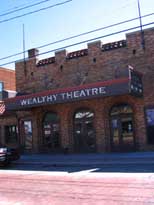 In Grand Rapids, the plucky Wealthy Theatre is using the internet to reach out to the West Michigan arts community in a unique way. The non-profit Community Media Center serves as a nexus of TV, radio, and live theater productions, as well as live speakers, talkbacks and educational workshops.
In Grand Rapids, the plucky Wealthy Theatre is using the internet to reach out to the West Michigan arts community in a unique way. The non-profit Community Media Center serves as a nexus of TV, radio, and live theater productions, as well as live speakers, talkbacks and educational workshops.
But through the Wealthy, they’re able to host informal film fests on an ongoing basis, including the Reel Thing Film Festival in March (a student video competition) and the Thriller! Chiller! Horror Fest in October.
Making the Industry Take Notice
Gatherings like the Wealthy Theatre’s are changing the notion of what constitutes a proper “festival.”
Still another variant, more along the lines of the industry events held in New York, Los Angeles and Las Vegas, is making inroads in the region. Preparing for its second appearance at Cobo Hall this September, the Midwest Urban Film Festival presents itself as more of an expo, “an avenue for independent filmmakers to get exposure for their products,” according to its founder, Alex Thomas.
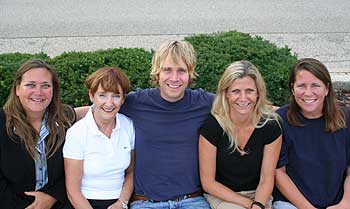 Thomas seeks to put local talent in touch with elusive industry professionals. “There’s enormous talent here – we just can’t get the exposure,” he says.
Thomas seeks to put local talent in touch with elusive industry professionals. “There’s enormous talent here – we just can’t get the exposure,” he says.
If Thomas aims to raise the prominence of local filmmakers, organizers of the True North Film Festival in Grand Rapids want to nurture young talent and stimulate their artistic energy. More of a creative competition really, participants in the event will have about four months to produce a short film based on a randomly drawn title. Registration for the event begins April 13, 2007.
“Our mission is to stimulate a challenge the Michigan film community into action and reaction, and to display local talent to an eventual national spotlight,” said organizer Ben Wilke. “ This is not just another small time film fest but a large scale event aimed at uniting the artistic community while fostering interest in the local theater and art scene as well.”
The Sundance Hopefuls
While many of these fests bring international visitors to the state, several still struggle to become a bonafide tourism juggernaut. The venerable Ann Arbor Film Festival all but dares out-of-state attendees to brave Michigan’s end of winter blues.
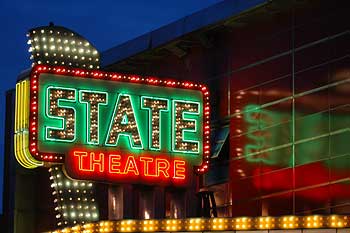 Over the last few years the 45-year-old festival has struggled to reassert itself in a crowded field of fests. Christen McArdle, the organization’s new Executive Director recently gained press when she got involved in a war-of-words with conservative legislators who criticized the fest as a venue for prurient material. The run-in turned out to be much ado about little but it did give Ann Arbor a badly-needed shot of notoriety.
Over the last few years the 45-year-old festival has struggled to reassert itself in a crowded field of fests. Christen McArdle, the organization’s new Executive Director recently gained press when she got involved in a war-of-words with conservative legislators who criticized the fest as a venue for prurient material. The run-in turned out to be much ado about little but it did give Ann Arbor a badly-needed shot of notoriety.
Other parts of the state are home to movie events more obviously modeled after Sundance, combining an enticing locale with a slate of crowd-pleasing, star-studded or otherwise accessible feature films. With filmmaker panels, screenwriting classes and open-to-the-public screenings, they create a buzzworthy event for travelers, whether they’re in-state roadtrippers or industry professionals looking for sun and sand to go with their schmoozing.
In two short years the Traverse City Film Festival has gone from a summer treat for locals to national sensation, worthy of major premieres and coverage in the Hollywood trades. It helps that its founder is the much loved/reviled documentarian Michael Moore.
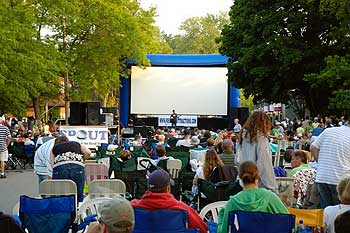 Last year, he was able to convince director Larry Charles to show a special sneak screening of the unexpected smash Borat, a month before its official premiere at the Toronto International Film Festival. Charles and director Terry George (Hotel Rwanda) liked the experience so much, they signed on to the festival’s Board of Directors.
Last year, he was able to convince director Larry Charles to show a special sneak screening of the unexpected smash Borat, a month before its official premiere at the Toronto International Film Festival. Charles and director Terry George (Hotel Rwanda) liked the experience so much, they signed on to the festival’s Board of Directors.
Saugatuck’s Waterfront Film Festival has found itself in much the same position. Without a single proper movie theater, this Lake Michigan tourist destination has managed in each of its eight years to provide an impressive slate of American indie films for the droves of Chicago and Grand Rapids-based tourists.
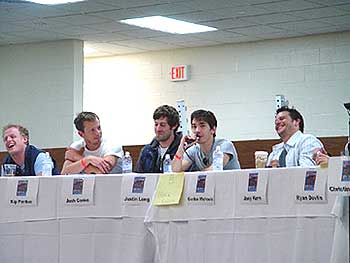 In addition to accepting submissions from plucky, undistributed directors, the fest has become a way for distributors to jump-start their art-house releases: Buzzed-about films like Napoleon Dynamite, Murderball and March of the Penguins had their Michigan premieres at the city’s various indoor and outdoor screens.
In addition to accepting submissions from plucky, undistributed directors, the fest has become a way for distributors to jump-start their art-house releases: Buzzed-about films like Napoleon Dynamite, Murderball and March of the Penguins had their Michigan premieres at the city’s various indoor and outdoor screens.
As if to underline its mission, Waterfront offers no awards. What could express the inclusive, egalitarian spirit of the modern film fest better than that?
Michael Hastings is an Ann Arbor-based writer who reviews films for Detroit’s Metro Times and is an editor at AMG’s All Movie Guide.
Photos:
Borat takes the marquis in Traverse City
Film fest info – Traverse City
Michael Moore takes the podium at the Traverse City Film Festival
Planet Ant logo
Wealthy St. Theater (photo by Brian Kelly)
Waterfront Film Festival Co-Founders (L. to R.): Dana DePree Minter, Judy Smith, Hopwood DePree, Kori Eldean, Dori DePree
State Theater in Traverse City
Outdoor concert and film screening at the Waterfront Film Festival in Saugatuck
A panel of filmmakers take questions from the audience – Waterfront Film Festival
Unless noted otherwise, all photos are courtesy of the respective Film Festival

